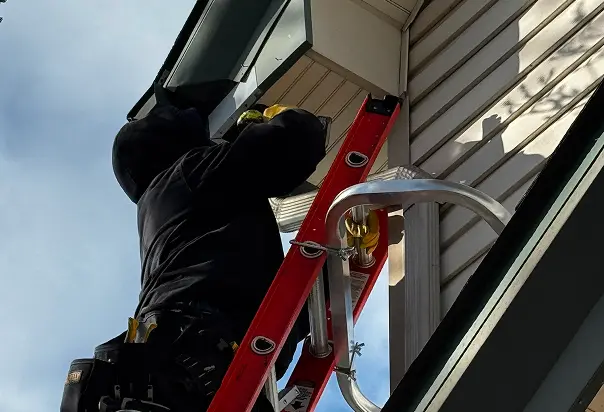For any business, maintaining a pest-free environment is not just about cleanliness or appearance, it is a matter of health, safety, and reputation. Integrated pest management, or IPM, offers a comprehensive and sustainable approach to pest control that prioritizes prevention, minimizes risks, and ensures long-term effectiveness. Whether your business operates in food service, healthcare, retail, or manufacturing, IPM provides a strategic solution that protects your facility, employees, and customers.
This article explores how integrated pest management works, why it is especially important in commercial settings, and when expert support can make the difference between temporary relief and permanent protection.
What Is Integrated Pest Management?
Integrated pest management is a science-based strategy that focuses on long-term prevention and control of pests through a combination of techniques. Unlike conventional methods that rely solely on chemical treatments, IPM uses a multi-faceted approach designed to minimize risks to human health and the environment.
The core principles of IPM include:
- Inspection and monitoring to detect pest activity early
- Identifying the species involved to apply the most effective control method
- Removing conditions that attract or support pests
- Using targeted treatments only when necessary
- Following up to prevent recurrence
This layered method is adaptive and can be customized to different industries, building types, and pest pressures.
Why Businesses Need a Strategic Approach
Businesses face unique pest challenges due to higher traffic volumes, shared spaces, and regulatory expectations. A reactive approach to pest problems, such as waiting until pests are visible, can lead to financial losses, health code violations, and a damaged reputation.
IPM offers a structured, proactive alternative. By identifying vulnerabilities and correcting them before pests become a problem, businesses can:
- Reduce downtime caused by infestations or treatment
- Avoid fines or closures linked to non-compliance
- Maintain a clean and professional environment
- Protect inventory and physical infrastructure
- Promote customer trust and employee satisfaction
Industries that operate under strict health and safety regulations, such as food handling, benefit significantly from adopting best practices in pest prevention.
Benefits of Integrated Pest Management for Commercial Spaces
Integrated pest management delivers a wide range of benefits for business owners, property managers, and employees alike.
- Cost-efficiency: By focusing on prevention, IPM reduces the need for repeated chemical treatments and minimizes long-term costs.
- Health and safety: IPM limits the use of harmful pesticides, making the workplace safer for employees, clients, and sensitive populations.
- Environmental responsibility: This method supports sustainability by targeting treatments and reducing unnecessary chemical use.
- Regulatory compliance: Many industries are required to have pest control protocols in place. IPM helps meet these obligations with detailed documentation.
- Early detection and prevention: Regular monitoring helps catch problems before they become widespread, saving time and resources.
Ultimately, IPM enhances operational continuity and supports a strong brand image.
Key Elements of an Effective IPM Program
To implement integrated pest management effectively, businesses must follow a structured process that includes the following:
- Site assessment: Understand the layout, sanitation practices, and specific risk zones in the facility.
- Routine inspections: Schedule regular checks to monitor for signs of pest activity or contributing factors.
- Pest identification: Properly identify pests to select the most appropriate, targeted treatment.
- Control measures: Apply mechanical, biological, or chemical controls when monitoring shows they are needed.
- Sanitation improvements: Cleanliness and waste management are essential for reducing attractants.
- Employee training: Staff should understand how their actions (such as food storage or waste disposal) influence pest activity.
- Ongoing evaluation: Continue monitoring and adjusting strategies based on seasonal shifts or pest trends.
A well-rounded IPM program is not static. It evolves with the environment and the needs of the business.
Industries That Benefit Most from IPM
Although all businesses can benefit from integrated pest management, some industries face a higher risk of pest-related problems and require more rigorous prevention measures.
Food service and restaurants
Facilities that store, prepare, or serve food are especially vulnerable to rodents, flies, and cockroaches. Proper sanitation, exclusion methods, and regular monitoring are critical.
Healthcare facilities
Hospitals and clinics must maintain sterile environments. IPM provides pest control with minimal chemical exposure, protecting patients and staff alike.
Warehouses and storage units
Pests can damage products and materials, especially in facilities that store food, paper, or textiles. IPM keeps inventories protected.
Retail and hospitality
Customer-facing businesses rely heavily on their reputation. A pest sighting can lead to negative reviews and lost business.
Multi-unit housing
Apartments and condominiums often deal with shared walls and communal areas. IPM ensures consistent protection across all units.
For all of these sectors, understanding how often you should schedule commercial pest control services can help maintain year-round coverage and avoid unexpected issues.
Why Professional Expertise Makes a Difference
While some aspects of integrated pest management can be handled in-house, the most successful programs are developed and overseen by trained professionals. They bring the tools, knowledge, and experience necessary to diagnose subtle issues, identify high-risk zones, and apply safe, compliant treatments.
Professionals also offer detailed documentation, which can be essential during inspections or audits. Whether it’s a commercial kitchen, office building, or healthcare setting, partnering with a qualified expert ensures that the IPM program is not only effective but also fully aligned with regulatory requirements and business goals.
The Essentials of Integrated Pest Management for BusinessesEssential Insights
Integrated pest management is more than a control method, it is a comprehensive strategy that safeguards your business from the inside out. With its focus on prevention, health, and sustainability, IPM helps businesses meet industry standards, protect their assets, and maintain a safe environment for everyone.To build a pest management plan that supports your business long-term, contact Clearview Pest Control and get started with a professional consultation.



